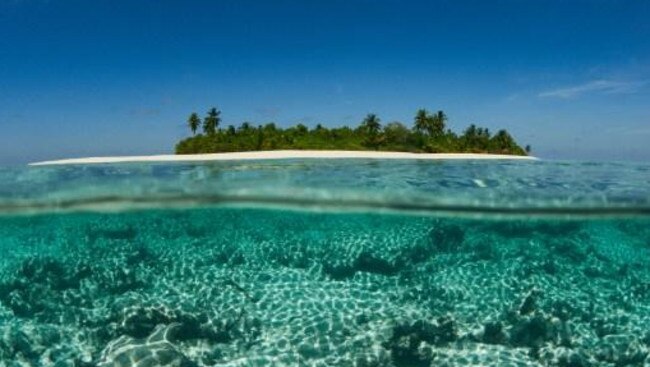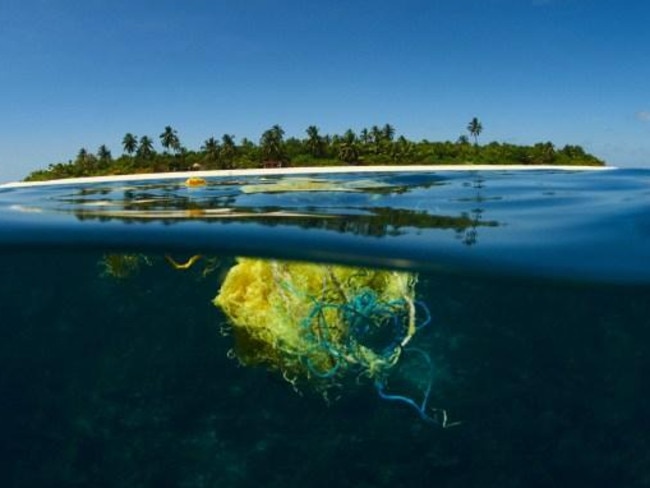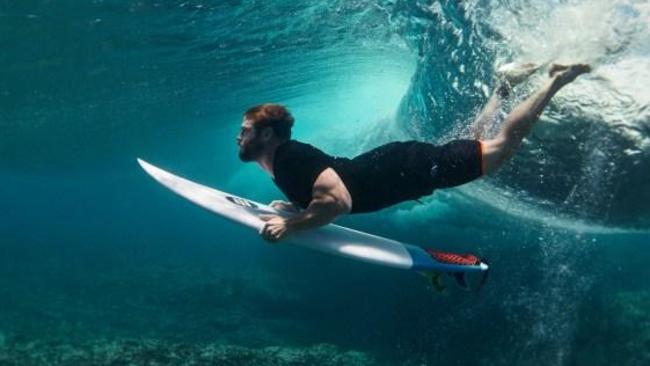Why you need to stop using plastic, now
BY the year 2050, the oceans will contain more plastic than fish. But leading environmentalists say that’s just the start of the problem.

WHAT if I told you that every single piece of plastic ever made still exists somewhere in the world today?
Would you still opt to eat your lunch with that takeaway knife and fork? Would you still ask to have your groceries double-bagged at the supermarket, knowing that it could end up in the belly of a bird, or in the gut of a whale?
Now, what if I told you that every second breath we take comes from the sea? Billions of people rely on our oceans for their food and for employment. In return, we suffocate it with mountains of garbage, toxic waste, pesticides, raw sewage and crude oil.
Plastic doesn’t disappear to that magical “away” place, nor does it break down, Whimn.com.au reports. Rather, it only breaks up and can float around for years, even decades, travelling tens of thousands of kilometres, before being ingested by an animal.
After that, there’s a good chance it will find its way to your own plate, with recent reports estimating that if you eat a lot of shellfish you might be consuming up to 11,000 fragments of the stuff a year. Still not convinced it’s finally time to opt out of single-use plastic?
HERE ARE THE COLD, HARD-TO-SWALLOW FACTS
• An estimated eight million metric tonnes of plastic waste enter the oceans each year. The problem is found in every known ecosystem and at every level of the food chain;
• More than 350 million tonnes of plastics are manufactured each year and that number continues to rise;
• Only 1% of what you see on the beach and on the surface is the plastic that exists in the world;
• If current marine pollution trends continue, the oceans will contain more plastic than fish by the year 2050;
• Leading environmentalists see the end of most sea life happening within the next 6—16 years;
• By 2025 all the coral reef ecosystems in the world will be gone;
• When wildlife ingest plastic, the brew of toxic chemicals can be transferred to the animal’s tissues. Fragments of plastics and textile fibres have been found in the guts of a huge variety of fish and shellfish that we eat.

WHAT IS BEING DONE?
Diminishment of biodiversity in our oceans is the single greatest threat to the survival of humanity. This is a fact we can no longer ignore. But there is a silver lining, we created the problem, so we certainly have the power to fix it.
“It’s not anymore a question of awareness, it’s not a matter of big, huge dreams. It’s now a question of how can we make it happen. Not if,” says Cyrill Gutsch, founder of Parley for the Oceans.
Together with Corona, Parley has announced a movement to end marine plastic pollution, launching a long-term partnership with a plan to protect 100 Islands by 2020 and to turn them into symbols of change.
Starting in six key regions in different parts of the world — Mexico, Maldives, Chile, Italy, Dominican Republic and Australia — the 100 Islands pledge aims to raise awareness and immediately reduce the production of new plastic, which Gutsch says is a “design failure”.
In addition to inventing Ocean Plastic from upcycled marine debris, Parley and Corona have developed a formula for long-term change: their AIR Strategy — Avoid plastic; Intercept plastic debris; Redesign materials, products and the ways we use them.
A LITTLE HELP FROM A FEW BIG VOICES
Along with Corona, a global brand that was born at the beach and is currently in 180 countries, Parley has brought on board artists, designers, filmmakers, marine biologists, musicians, photographers and scientists to lend their voice to the pledge.
Among them is local hero Chris Hemsworth, who headed to the Maldives with the company to see first-hand what was really happening in paradise.
“I’ve spent a large part of my life in and around the ocean, it’s where a lot of my happiest memories came from,” the Aussie actors says. “If I had anxieties or worries, I’d head to the ocean and it was always the place where I could reset and be 100% present. My experience in the Maldives made it obvious how our short-term use of plastic has a long-term damaging effect on our oceans.”
“I’m thrilled to be a part of this program, because I want to inspire people to find a solution and protect the world’s oceans so future generations can enjoy them like I do.”

SO, WHAT CAN YOU DO?
The most effective way to keep rubbish from washing up on the world’s beaches is to reduce our dependence on plastics, especially single-use items, and to commit to seek out alternative materials where possible.
When we mention single-use plastics, we’re talking about so-called “disposable” items such as razors, cutlery, plastic cups, plates, coffee lids, bottle tops and plastic bags. These are some of the most common items that wind up being washed up on some of the most beautiful and remote beaches in the world, including many in Australia.
These are the areas where we can all make better choices when choosing our everyday products and how we dispose of them. But it requires planning, awareness and it does take time.
“Pick some battles and say, ‘I will opt out of these items’. Don’t stress yourself out because that’s the first thing that comes, New York-based Gutsch advises.
“You have so many options, there’s no excuse. The only excuse is that you don’t have time and you don’t take the time but if you truly want to cut down your plastic consumption then there are countless ways of doing it,” he says. “You can opt out of products, you don’t have to drink bottled water ever gain if you don’t want to.”
“I think reduction is the answer, particularly in major cities where you are offered at every corner to buy something. Reduction is the key. It’s abut making changes in our professional and personal lives.”
Gutsch’s advice for the everyday consumer? “Be annoying. Be demanding, and ask for alternatives [at the supermarket]. Ask and ask and ask and you wouldn’t believe how quickly it starts to change.”
For more information on how you can turn the tide on plastic, visit Parley, or the United Nations Environment Program (UNEP)
This story originally appeared on Whimn.com.au and was republished with permission.



